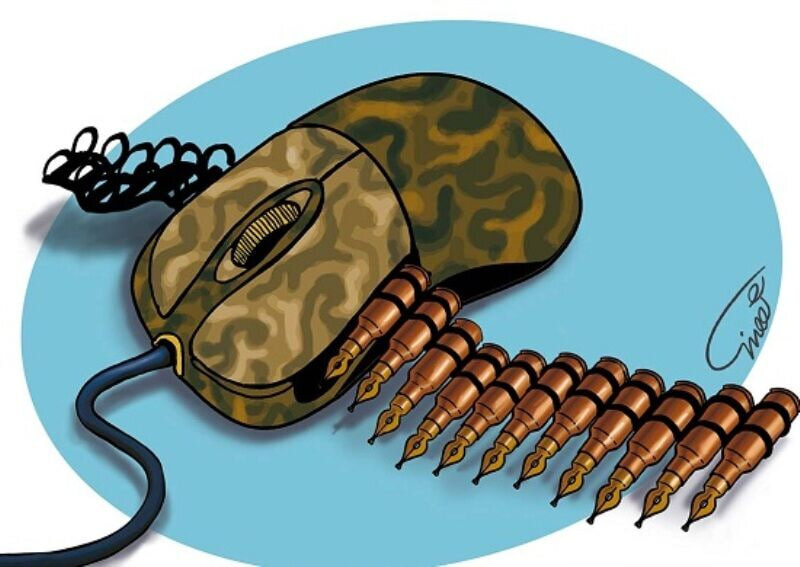The cognitive war against Iran and geopolitical shift

It was freezing when I arrived in Tehran in December last year. I came to attend the third edition of the Tehran Dialogue Forum. The pollution of Tehran made the morning sun feel very gloomy, but the Christmas tree in the hotel lobby with colorful decorations brought back the mood.
We then followed a series of dialogue events, and one of the speakers, Dr. Kamal Kharrazi, mentioned a term. According to him, many foreign media are involved in the war against Iran by interfering with public opinion, called cognitive warfare.
I feel very related to what Kharrazi said. Some people are worried about me going to Iran because they think Iran is full of chaos and unrest. And indeed, that is what the media in Indonesia disseminate because they only repeat the news from Western media. I found the situation in Tehran and other cities I visited delicate. Women walk around and carry out activities in public places safely. Some of them are neatly dressed in hijab, and some are not.
Several people expressed their astonishment when I posted a photo of me at the TDF venue on Facebook, where I was sitting with two women in the middle of so many male participants. This surprise is not strange considering how massive the news is about "how cruel this regime treats women." The media have shaped public opinion about Iran.
As written by Waltzman (2022), quoting from Bernal et al., "cognitive warfare can be functionally defined as 'the weaponization of public opinion, by an external entity, for the purpose of (1) influencing public and governmental policy and ( 2) destabilizing public institutions.'"
The enemy attacks the public's cognitive abilities in cognitive warfare by manipulating emotions. Stories of women being oppressed, even killed, will instinctively easily trigger public emotion and anger. But this also really depends on how the media reports it. How many women have suffered in Palestine as a result of Israeli occupation, or in Afghanistan, as a result of the US occupation for 20 years, but because there is no such massive media orchestration, public opinion doesn't care?
International media often omit some information that provides context for an incident to manipulate the audience's emotions. For example, the execution of a person who killed security forces was reported using the word 'protester' as if he was punished only for voicing out a demand, not for killing.
The US has carried out cognitive warfare for decades. Twenty years ago, on February 5, 2003, US Secretary of State Colin Powell sat before members of the UN Security Council. Powell presented "evidence" regarding weapons of mass murder in Iraq. In the guise of "saving the world from chemical weapon," US military attacked Iraq, overthrew Saddam Hussein, and to this day, it is still entrenched there. After one million people died in Iraq, the US elites admitted that there were no weapons of mass murder.
The lies about Iran, Libya, Syria, Cuba, Venezuela, Russia, China, and various other countries, which are the targets of the US agenda to overthrow the regime, have been exposed many times. The US can be called a master in cognitive warfare. They have a powerful and extensive global media network. The US' goal in this war is to maintain its hegemony in the world.
However, over time, the world community has increasingly understood that Western democracy's jargon, accompanied by coercion, even war, is nothing more than an attempt to open the door for more massive exploitation of natural wealth in a country. With this awareness, political-economic forces emerged, which became new axles, such as the BRICs (Brazil, Russia, India, China, and South Africa) and the SCO (The Shanghai Cooperation Organization). Many countries are starting to dare to use currencies other than dollars, a development that will accelerate the collapse of the pillars of the Western economy. Recently, Brazil and Argentina launched a proposal to create a common currency that would reduce a detrimental dependence on the US dollar.
Amidst this geopolitical shift, Iran plays an important role. Despite continuing to suffer from economic sanctions and cognitive warfare attacks launched by the West and its allies, Iran has maintained its influence in the region by force and dialogue. Iran uses its strength to fight Western-financed terrorist organizations in the region, such as ISIS and Al-Qaida. At the same time, Iran maintains a dialogue and economic cooperation with various countries worldwide, including Indonesia. In October 2022, Indonesia and Iran completed the 6th round of negotiations on the Indonesia–Iran Preferential Trade Agreement (II-PTA). As stated by Iran FM in the Tehran Dialogue Forum, "Iran is ready to build confidence and cooperate at all levels with neighbors to bring about sustainable security."
When more and more Global South countries dare to take a stand and fight against the cognitive war waged by the West against them, hopefully, a world based on equal and fair cooperation will soon be realized.
*Dina Yulianti is Assistant Professor at Department of International Relations Universitas Padjadjaran Indonesia
Leave a Comment